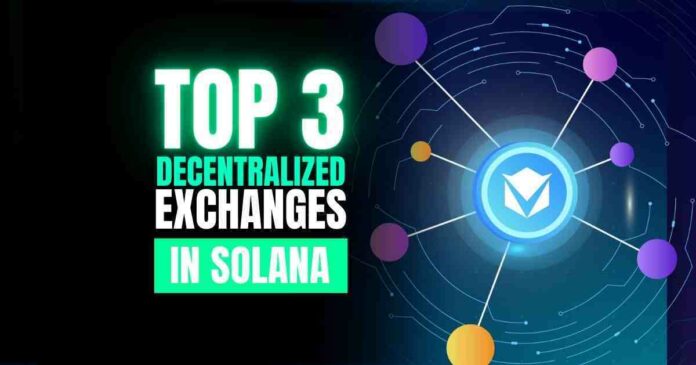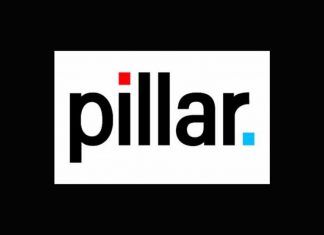Solana is an emerging talent, stretching the limits of what is possible in the fast-paced world of blockchain technology, where ingenuity is truly paramount.
The potential for the Solana blockchain to alter the DeFi environment is becoming increasingly apparent as decentralized exchanges (DEXs) gain tremendous traction, particularly in the aftermath of the FTX fiasco.
This article provides insight into the three best DEXs in Solana: Orca, Raydium, and Atrix.
Before that, let’s take a brief look at Solana.
What Is Solana?
Solana is a cryptocurrency framework developed to house decentralized, scalable applications. The network connects decentralized computers worldwide into a single cloud platform its users own and run. Solana, the brainchild of software developer Anatoly Yakovenko, uses a proof-of-history consensus mechanism.
Source: Solana
The SOL tokens are staked and used as collateral to process transactions on the network, and it powers the network’s decentralized applications, payments, fees, security, and governance.
Moreover, Solana is a dispersed network with a processing speed of about 50,000 transactions per second compared to the Ethereum network’s processing speed of only 15 transactions or less per second. As a result, Solana has the potential to compete with centralized payment giants like Visa, which can benefit everyone involved by reducing congestion, costs, and time.
Now, let’s move on to the best three DEXs in Solana.
1. Orca
Orca is one of the most user-friendly decentralized exchanges on the Solana network. This community-oriented exchange has made buying Solana assets as straightforward as possible.
Source: Orca
Orca is also an automatic market maker (AMM). It facilitates decentralized trading with user-contributed “liquidity pools” and a strong price discovery mechanism. The $ORCA coin powers the Orca DEX by leveraging Solana’s strengths to perform rapid and cost-efficient transactions.
Orca has impressive rewards for LP holders. Liquidity providers can claim 0.3% in transaction fees and marine-themed NFTs. NFT Killer Whale is the busiest liquidity source, hosting events in seven rare groups.
You can buy $ORCA on Coinbase Exchange, CoinTiger, MEXC, Gate.io, and XT.COM.
How to buy ORCA decentrally:
- Set up a Solana wallet (Phantom).
- Deposit SOL in your wallet.
- Go to orca.so and select SOL-ORCA pair.
- Put the amount of SOL and verify the transaction.
Solana has lower transaction costs and faster transaction speeds compared to other blockchains. Don’t panic if your SOL doesn’t appear in your wallet immediately because transactions processed through controlled platforms like Coinbase can take a little longer.
2. Raydium
In addition to being one of Solana’s most important decentralized financial protocols, Raydium is an essential component of the Solana DEX environment.
Source: Raydium
In 2020, Solana and Serum DEX debuted Raydium, a Solana blockchain-based decentralized market.
Raydium is a Solana automatic market maker and liquidity supplier for the Serum decentralized exchange (DEX). Raydium LPs can use the on-chain liquidity of a single-limit order book to access Serum’s order flow and liquidity.
Raydium’s hybrid design, which includes an automatic market-maker protocol that works with the Serum central limit order book, ensures there will be a lot of buyers and sellers. With selling and network fees of 0.25% per transaction, Raydium is fast and affordable. Liquidity suppliers receive a cut of the pool’s trading fees based on their share. Fusion pools award liquidity providers with third-party project coins. Raydium introduces a three-step funding process for new Solana dApps.
The primary utility token in the Raydium environment is the $RAY coin. There is a growing number of cryptocurrency and stablecoin exchanges where RAY is available to trade. Popular marketplaces include Binance, Kraken, OKX, Mexc Global, Gate.io, and Raydium.io.
3. Atrix
Atrix is a decentralized AMM exchange on Solana that uses the order books of Serum. Users can stake, farm, and provide liquidity pools on the platform. Investors obtain Atrix LP tokens (ALP) when adding liquidity to the pool.
Source: Atrix
Attrix also has an innovative incentive program for liquidity providers.
Currently, Atrix possesses three strategic products: an AMM DEX built on Serum’s order books for exchanging tokens, liquidity pools that can add liquidity straight to Serum, and yield farms that can mine the liquidity.
Benefits and features of Atrix
Atrix LP tokens can create pools where Serum market players can add liquidity and earn an equal cut of the pool’s profits. Staking tokens on Atrix’s fields and assigning them to Serum, with open orders updated as trades occur, maintains the token valuation. To ensure liquidity, Atrix also runs liquidity pool gears.
Besides, Atrix conducts all its trading transactions on the Serum DEX, paying no transaction or exit costs.
Conclusion
Solana integrates cloud-based automated devices and creates a single-layer database to facilitate low-cost and lightning-fast transactions. Orca, Raydium, and Atrix are the three DEXs in charge. Orca operates the Orca market on Solana, where liquidity providers receive 0.3% of transaction fees, and users receive NFTs. Raydium and NFT Killer Whale are supporting the development of new Solana dApps. On top of that, users can take advantage of Atrix’s DeFi services to join OG groups!
⬆️ For more cryptocurrency news, check out the Altcoin Buzz YouTube channel.
⬆️ Our popular Altcoin Buzz Access group generates tons of alpha for our subscribers. And for a limited time, it’s Free. Click the link and join the conversation today.





























